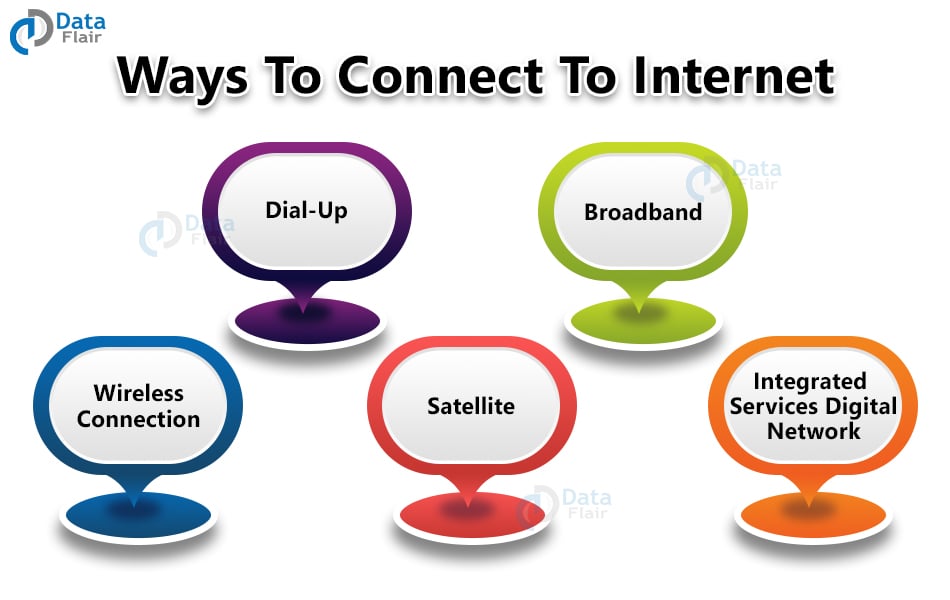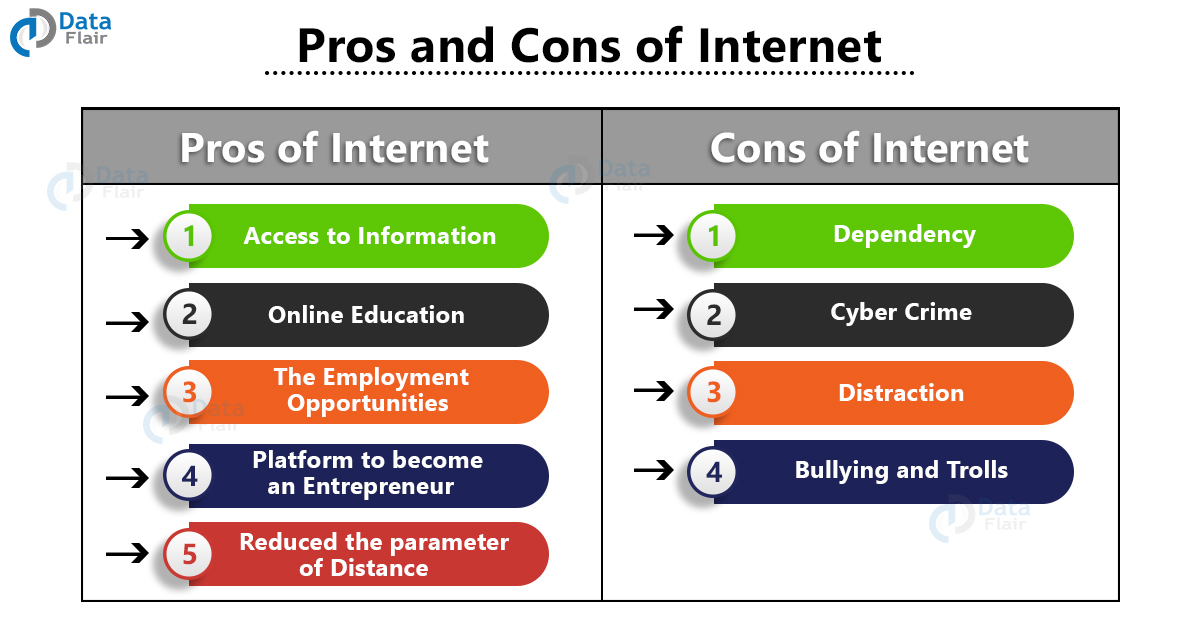Introduction to Internet – Evolution, History and Protocols
FREE Online Courses: Elevate Skills, Zero Cost. Enroll Now!
The Internet is a network at a global level connecting an uncountable number of computers to the web and each other. The standard internet protocol suite that is TCP and IP connects these computers.
The optical fiber cables and other wireless technologies make it a network that is the fastest to send and exchange information and data. It becomes a network because it connects devices, servers, using several channels and communication devices. It’s a global network of cables, wires, wireless connections, etc to connect multiple devices be it computers, laptops, mobile phones, or anything else.
But it’s not the same as the World wide web which many people often confuse it with. WWW is the network created by the internet and thus the web is a result of it and a medium to interact. Nobody or no organization owns the internet, it’s a concept with more than 300 crores users. And this is just the base, the internet is much more than this.
Let’s try understanding the internet from the very beginning that is from its origin.
History and Evolution of the Internet
The history suggests that the Defense Advanced Project Agency developed the internet in the USA. The first connection to set up was in 1969 but after that, the technology revolutionized globally giving us what we have today.
Multiple researchers and scientists developed the internet together, it was not a one-person job. After DARPA, commercialization of the internet began with transmitters and transistors fitting in small devices in the 1970s. Moving towards satellite and wireless communication, DARPA came with satellite-based radio packets for mobile networks.
Then came the Transmission Control Protocol enabling machines to assemble data packets in the 1980s. With the idea of the personal computer came the commercial use of the internet and thus came the Ethernet. The web browser entered the frame in 1993 bringing in the point-and-click approach with it.
By the 1990s, the US being the leader had a large number of internet service providers. The 21st century brought together technology accessibility and wireless services together as a treat for the users. Now is the era of artificial intelligence and the future scopes are even wider.
How does the internet work?
The server and the client make up the internet connection. The connected device is the client while the server is not connected physically to anything but virtually to the internet service provider. The IP address is the device’s address and every server needs to have one to exist. The data center is where you find several servers.
These servers receive the client request on which they respond accordingly. The domain name is mandatory to access the internet as it consists of the IP address number. They are difficult to remember but not for the computer. The Domain Name server has a list of all the registered IP numbers which allows computers to find them very easily.
To make it simple, when the user searches for anything online, the browser is sending a request to the DNS for the IP address. Once the IP address is sorted, the browser reaches the respective server completing the search. The server then accepts the request resulting in the flow of data. The optical fiber facilitates data transfer in digital form from one device to another.
There is a connection between the router and the fibers allowing the conversion of light signals into electric ones. This transmission is by the ethernet cable allowing users to get the needed information. In the case of wireless networks, the signal reaches the cell tower first in the form of electromagnetic waves.
The Internet Corporation for Assigned Names and Numbers of the USA manages the internet, IP address allocation, domain name registration, and more.
Ways To Connect To Internet
1. Dial-Up
The dial-up connection uses the phone line to its computer and then gets internet access. And during this time the calling services of the mobile phone are temporarily suspended.
2. Broadband
Many cable and phone companies are providing broadband connection. It is a high-speed connection for the internet massively used around the world.
3. Wireless Connection
Smartphones and wifi are classic examples of wireless connection. Internet connectivity in this is through radio waves and is accessible anywhere despite the location.
4. Satellite
The places that do not have an access to broadband connection settle for satellite wireless internet connectivity instead.
5. Integrated Services Digital Network
Integrated Services Digital Network is for users to send out audio and video data through telephone lines.
Internet Connection Protocols
The internet protocols are to monitor if a particular set of technology is functioning correctly or not. There are three major protocols –
1. TCP/IP Network Model
Transmission Control Protocol (TCP) and Internet Protocol (IP) are the widely used protocols in the world. They divide the message or the information into packets which are then sent from the sender to the receiver.
2. File Transfer Protocol
The File Transfer Protocol allows one device to share multimedia files, text files, documents, etc. with another device.
3. Hypertext Transfer Protocol
This protocol allows devices to transfer hypertexts to one or more devices. The link creation is by the HTML tags and they are usually in text or image form.
Advantages of Internet
1. Access to Information
The things available on the internet are unlimited making it a source of information. Users can find anything and everything with just a click without worrying about time and place.
2. Online Education
Distance education may be a foreign term a few years ago but with the internet, students can sit in any corner of the world and gain all the knowledge by attending online classes. Many portals also offer online courses for free changing the educational scenario.
3. Employment Opportunities
Users can now search for career opportunities via the internet be it for job seekers or job switchers. Not only that, but the employer can also find the ideal candidates for the job with platforms like Linkedin coming up.
4. Platform to become an Entrepreneur
The influencers are the new opinion leaders and thanks to the internet they have become an entrepreneur. This was just one example, the internet provides users with endless opportunities to grow their business with easy access and low-cost resources.
5. Visual and Graphical Representation of Things
Consumer behavior is changing drastically, nobody wants to read anymore. Everyone wants a quick solution and the internet enables that with visual representation by images and videos making things more user friendly.
6. Reduced the parameter of Distance
While physical distance remains a thing, the internet has bridged the gap by bringing everything closer virtually. Be it education, finance, eCommerce or anything internet ensures that nothing is far for the users and is always with them.
7. Get directions
Gone are days when physical maps were relevant, with technology development the GPS is what people prefer. It allows users to get direction, approximate travel time, distance, and much more before even beginning the journey.
8. Online Shopping and Selling
From food to clothes, everything is available online. And the best part is the internet has made the market more competitive, making the brands resort to lower-priced products which is only a benefit for the user.
9. Online Banking
Net banking and UPI are the most common transactional methods in this century. People want everything very fast and the internet is making that happen. Be it to pay the bills or to invest in stocks, banking is now just a click away.
10. Work from Home
Just like distance education, work from home is also something very common. The workstations are available for all sorts of experts in the market making it easier for the professionals to work at their ease.
11. Entertainment
Over-the-top platforms are something everyone uses and that is solely because of the internet. The entertainment industry is shifting digital with time be it for movies or music or books, all things are on the internet.
12. Cloud computing
Many cloud services are accessible to mass audiences now be it for data storage, sharing documents, or just creating a community. Cloud computing is one of the other benefits of the internet.
Limitations of Internet
1. Dependency
Humans heavily rely on the internet for most things. This has led to a lack of creativity and efficiency in the human mind. And the development in technology is only increasing the dependency.
2. Cyber Crime
While opening a set of new opportunities to explore, the internet also opens up a dark space of threat. Privacy concerns, money laundering, etc are just a few examples of cybercrimes that come with technology development.
3. Distraction
The Internet opens up the window for countless results thus distracting people from important things. It is hard to focus when many things are accessible together.
4. Bullying and Trolls
The social media space allows people to put forward their opinions but at the same time many criticisms come up with them. The public figures are used to it but for the general public the cases of bullying and trolling lead to severe results.
Conclusion
The internet is the most common term we use every day for almost every purpose. But there are things that make up the internet and thus an introduction to the internet is something everyone should be aware of. From the evolution to its application, everything is important from an exam point of view.
Exams like SBI PO, IBPS, and RRB have this topic as part of their mains exam syllabus. Thus all the bank exam applicants and the railway’s exam candidates should read this article before the exam.
You give me 15 seconds I promise you best tutorials
Please share your happy experience on Google



